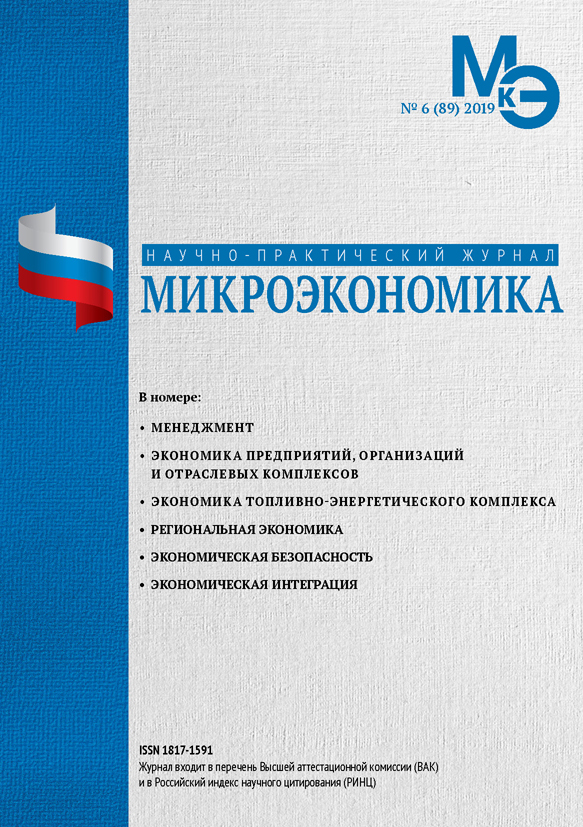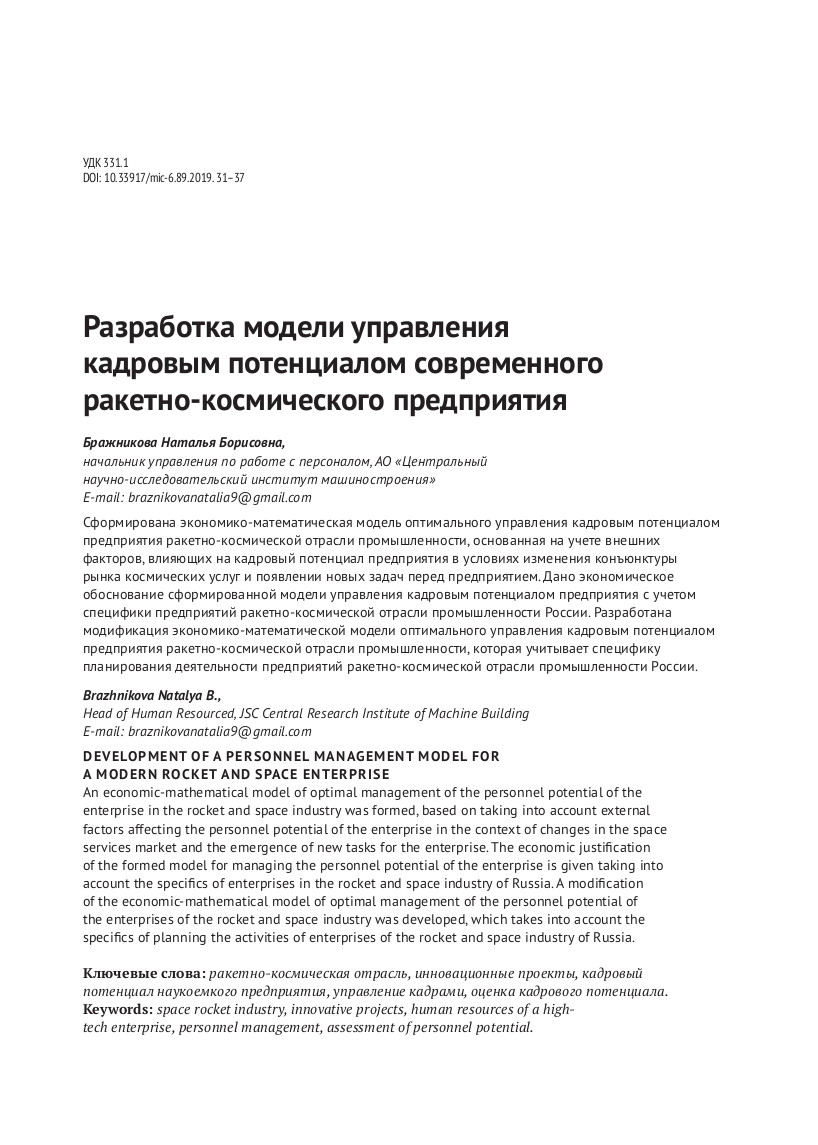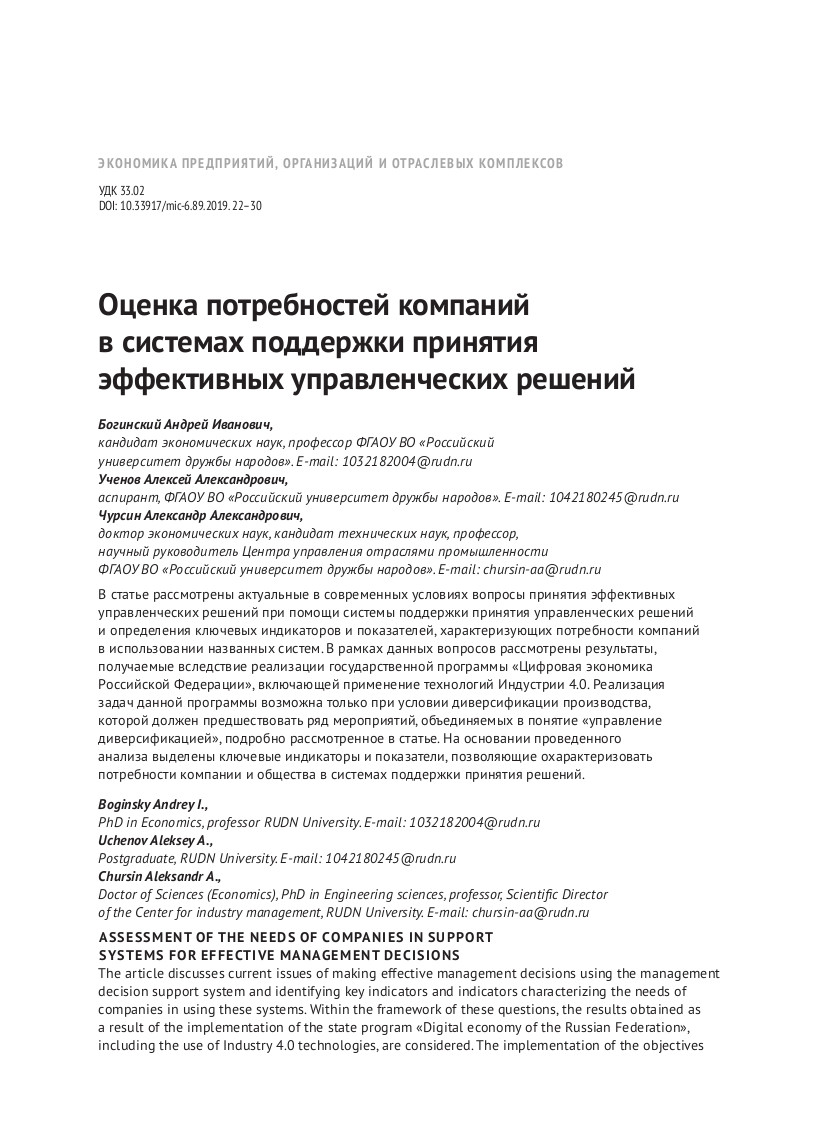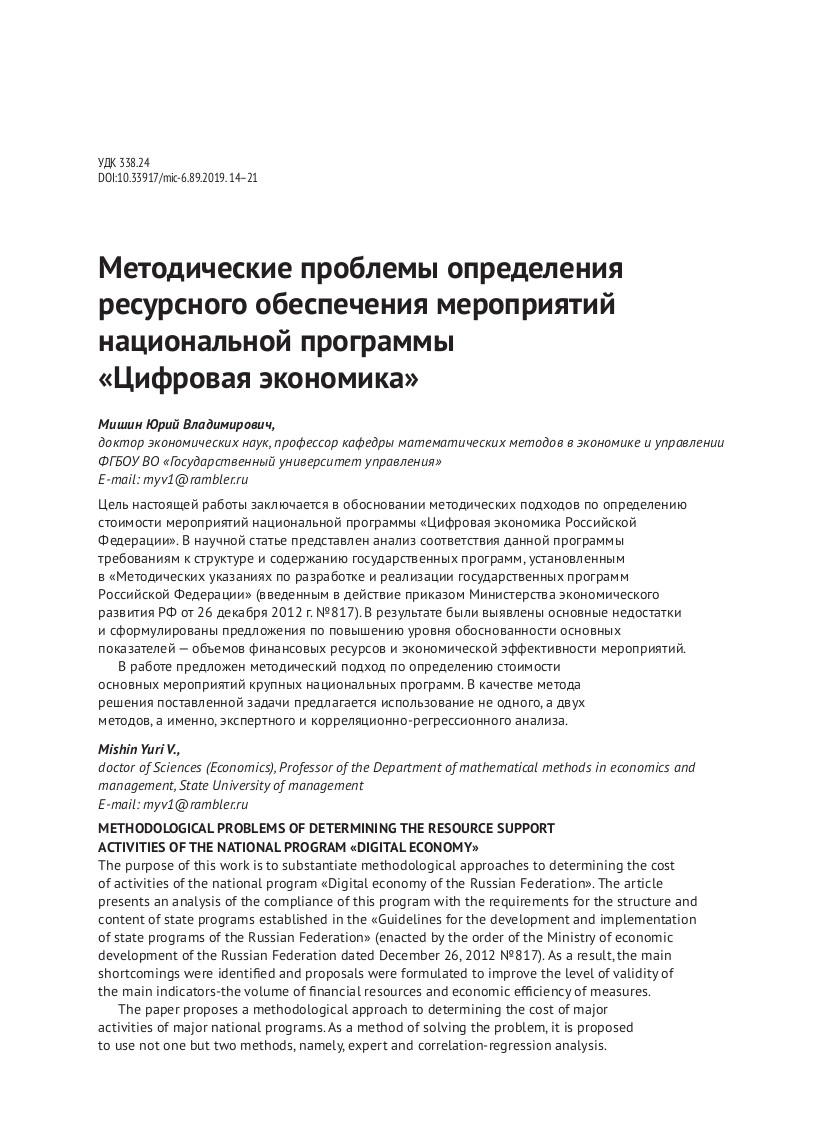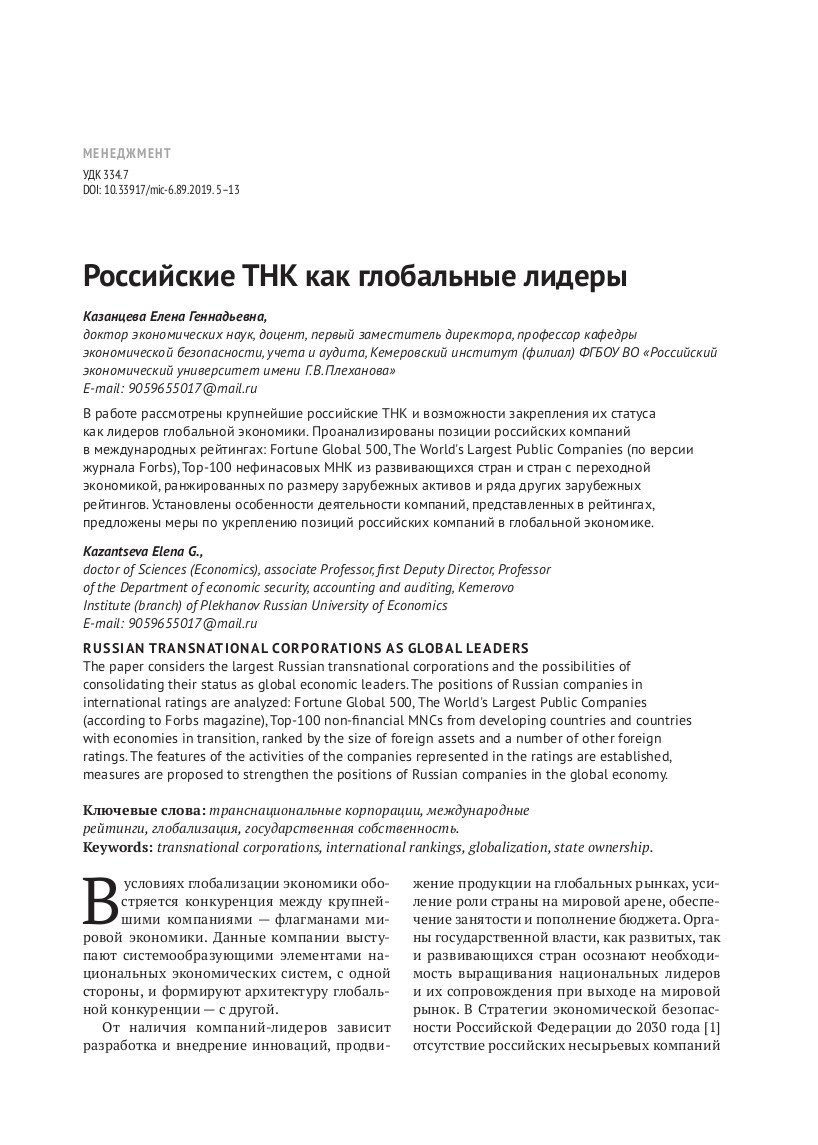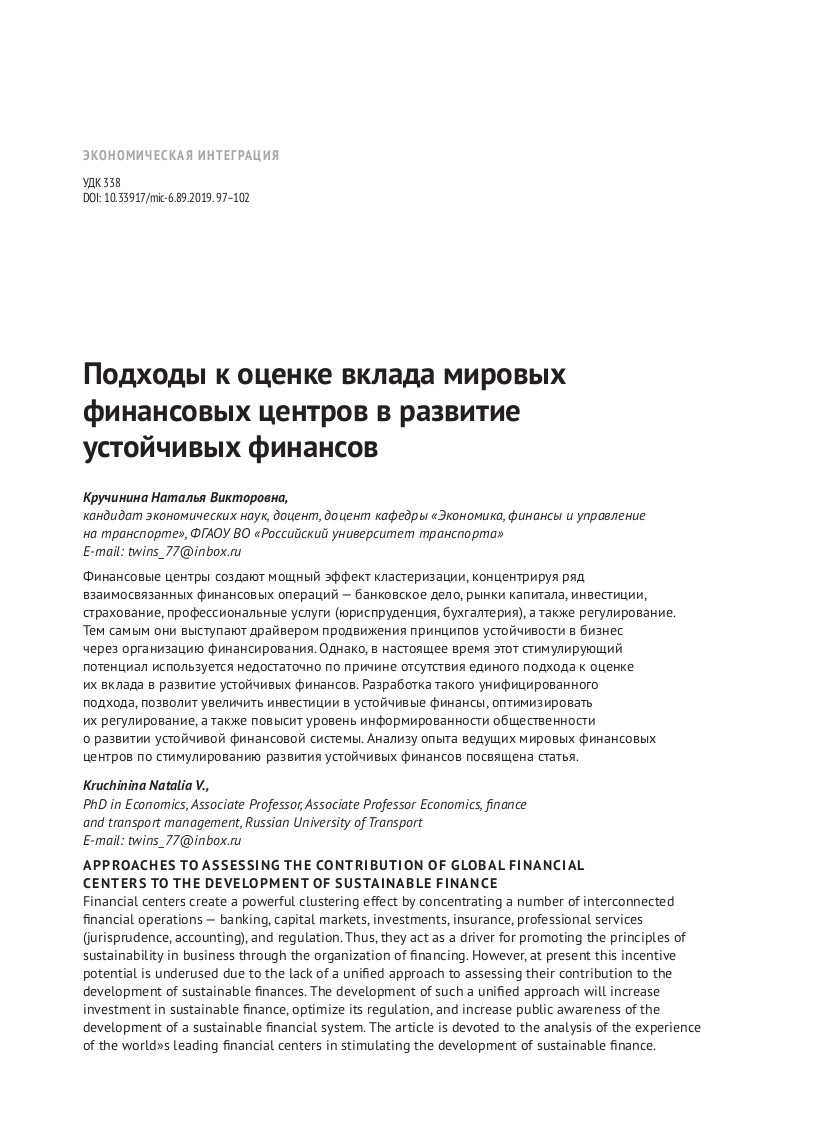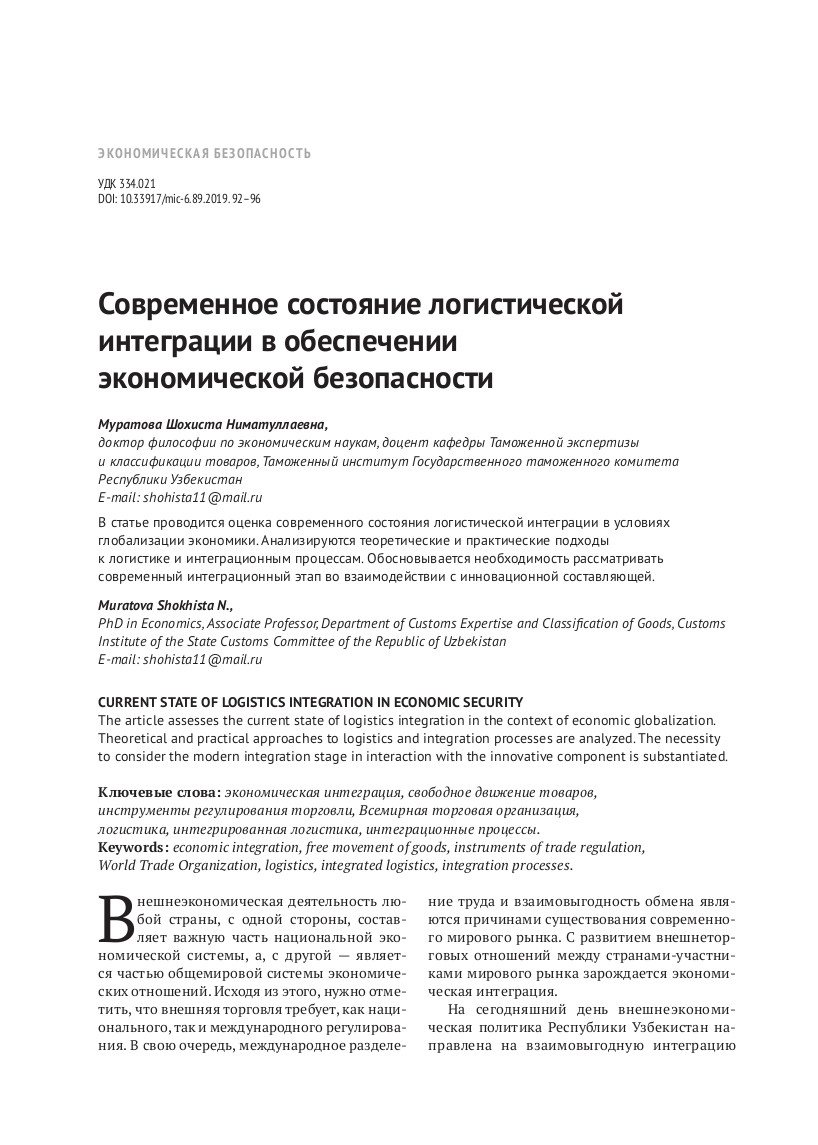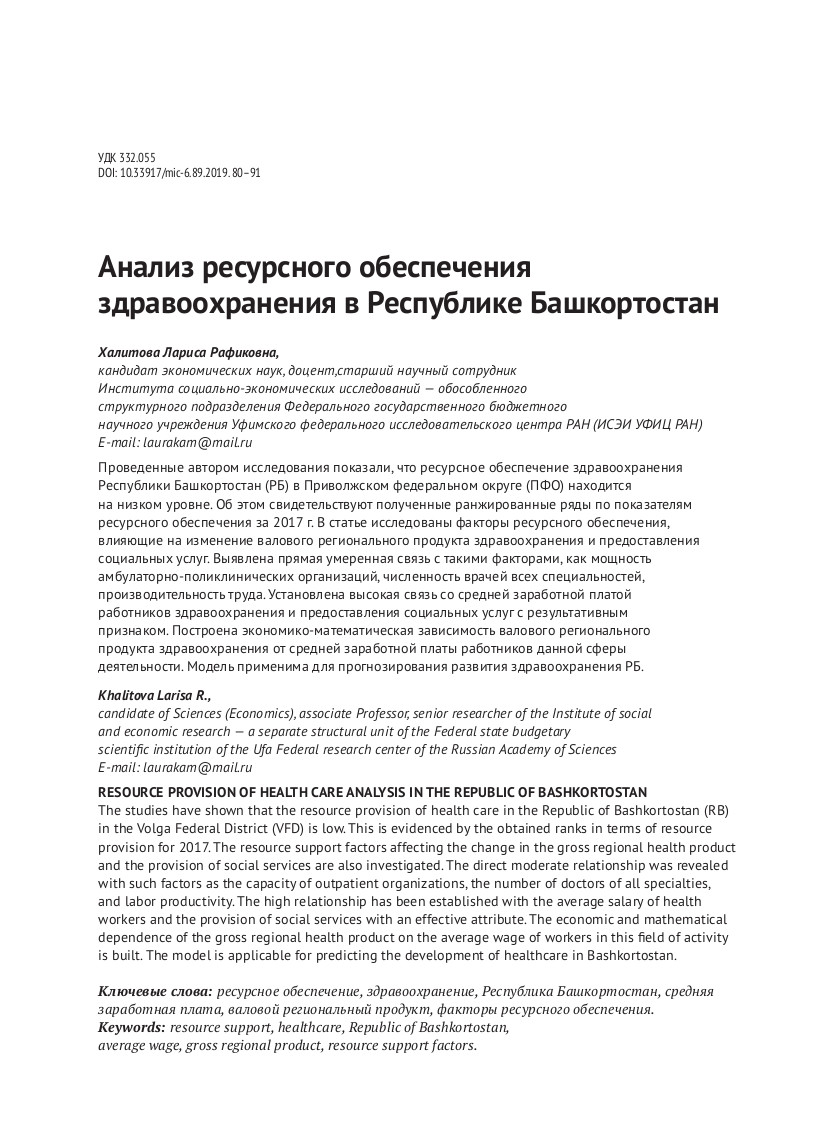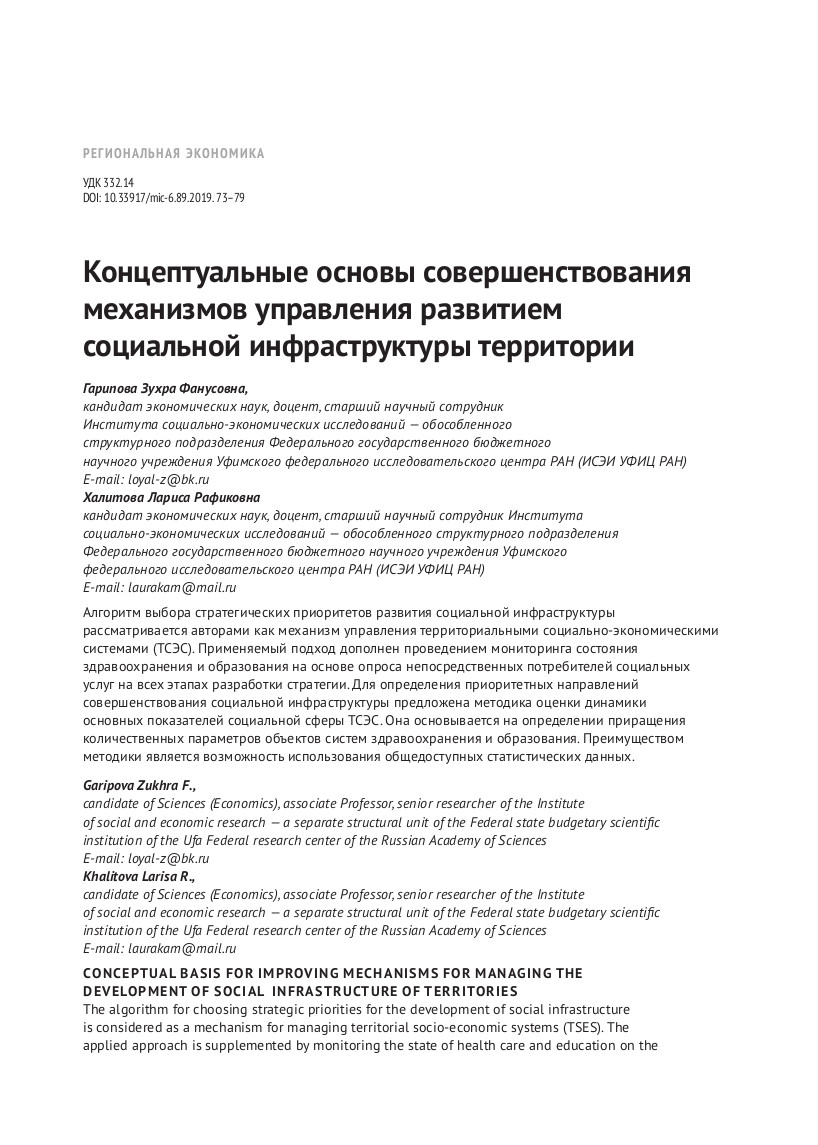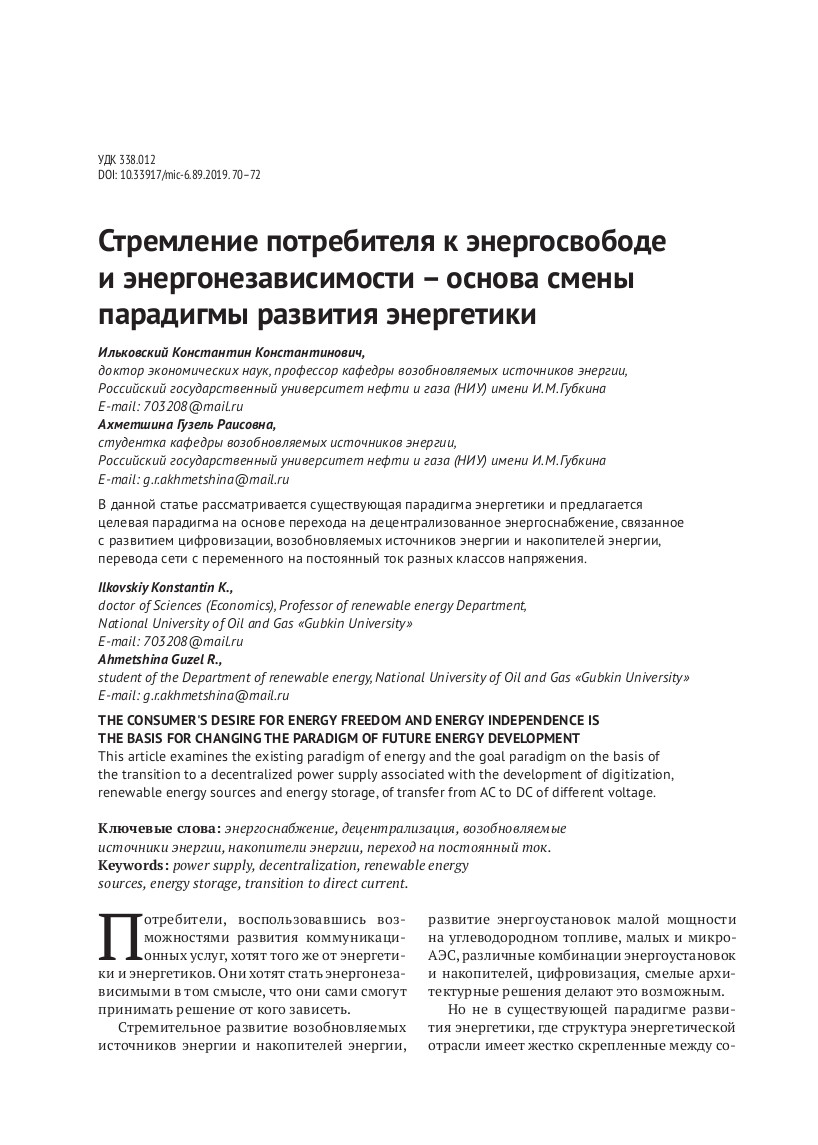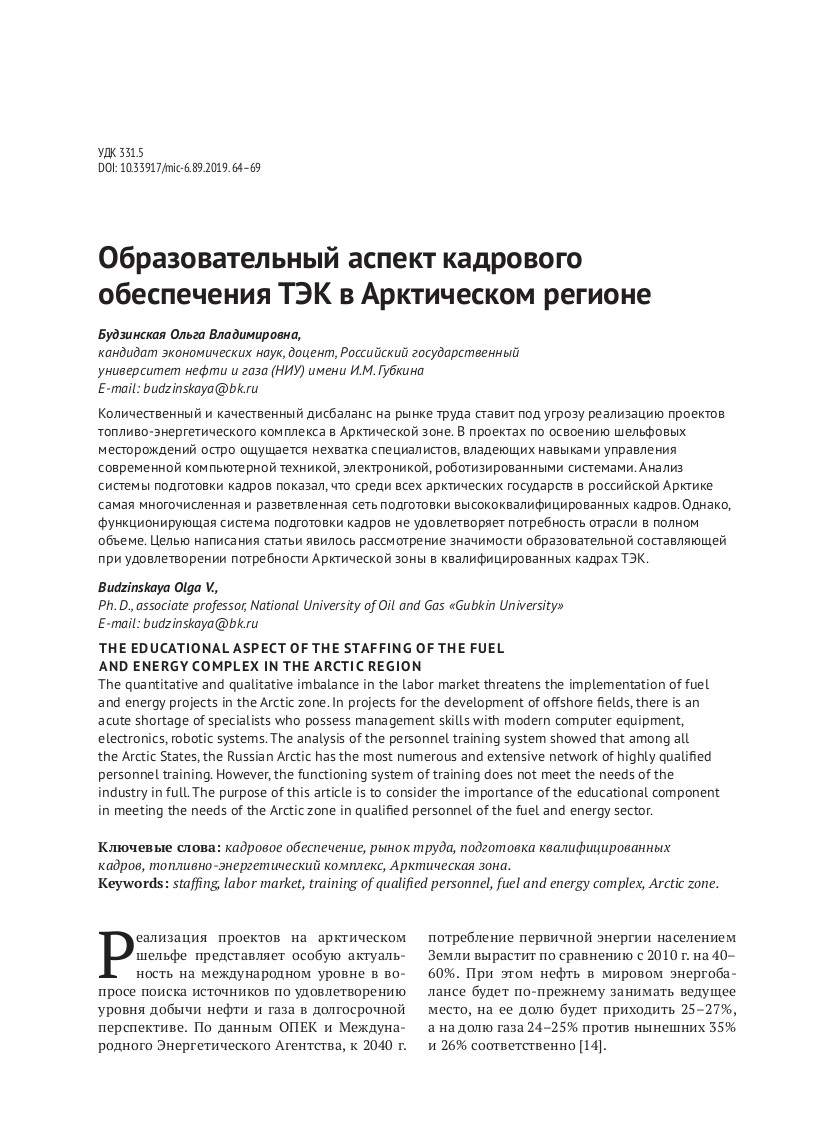Development of a personnel management model for a modern rocket and space enterprise
DOI: 10.33917/mic-6.89.2019.31-37
An economic-mathematical model of optimal management of the personnel potential of the enterprise in the rocket and space industry was formed, based on taking into account external factors affecting the personnel potential of the enterprise in the context of changes in the space services market and the emergence of new tasks for the enterprise. The economic justification of the formed model for managing the personnel potential of the enterprise is given taking into account the specifics of enterprises in the rocket and space industry of Russia. A modification of the economic-mathematical model of optimal management of the personnel potential of the enterprises of the rocket and space industry was developed, which takes into account the specifics of planning the activities of enterprises of the rocket and space industry of Russia.


